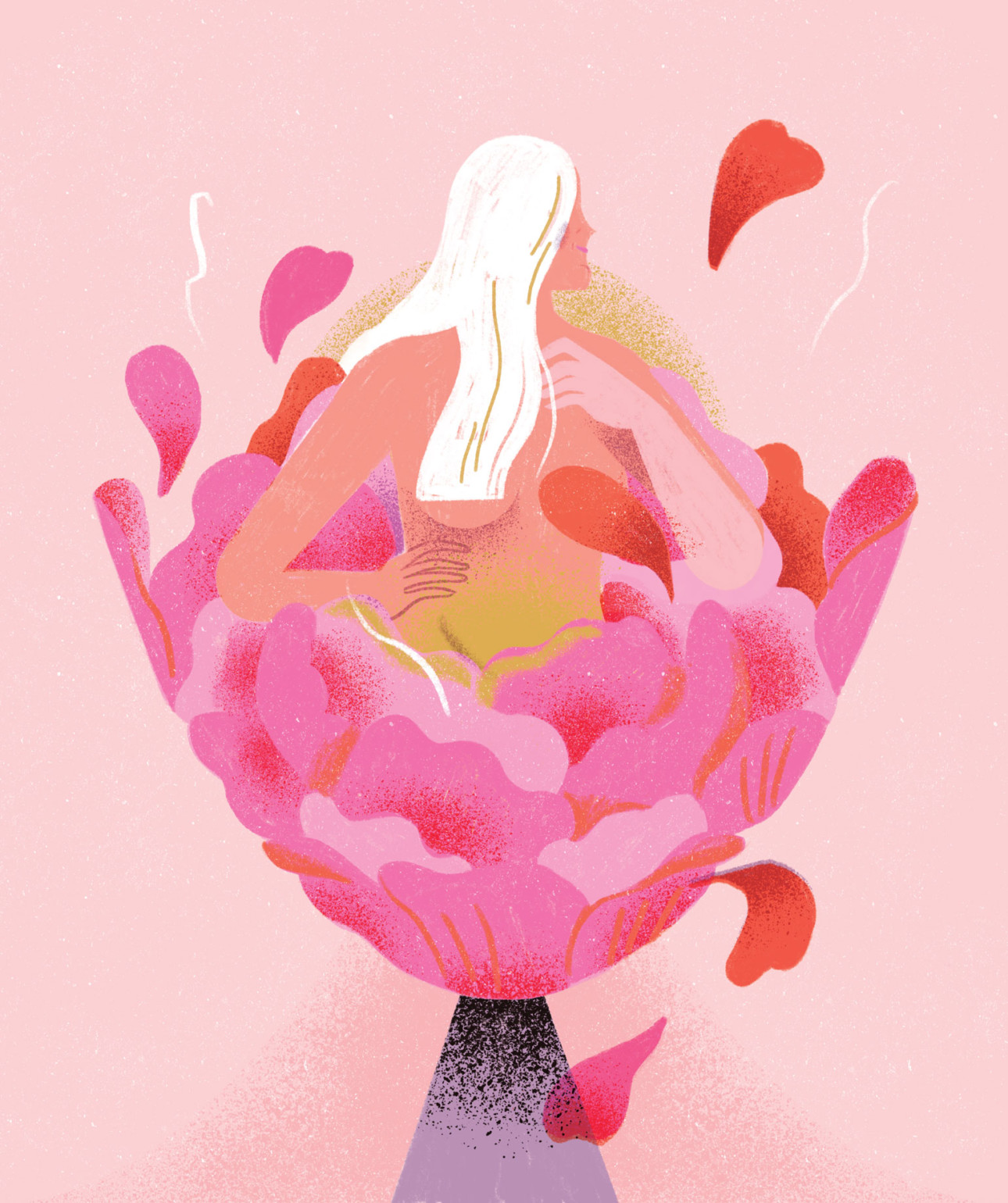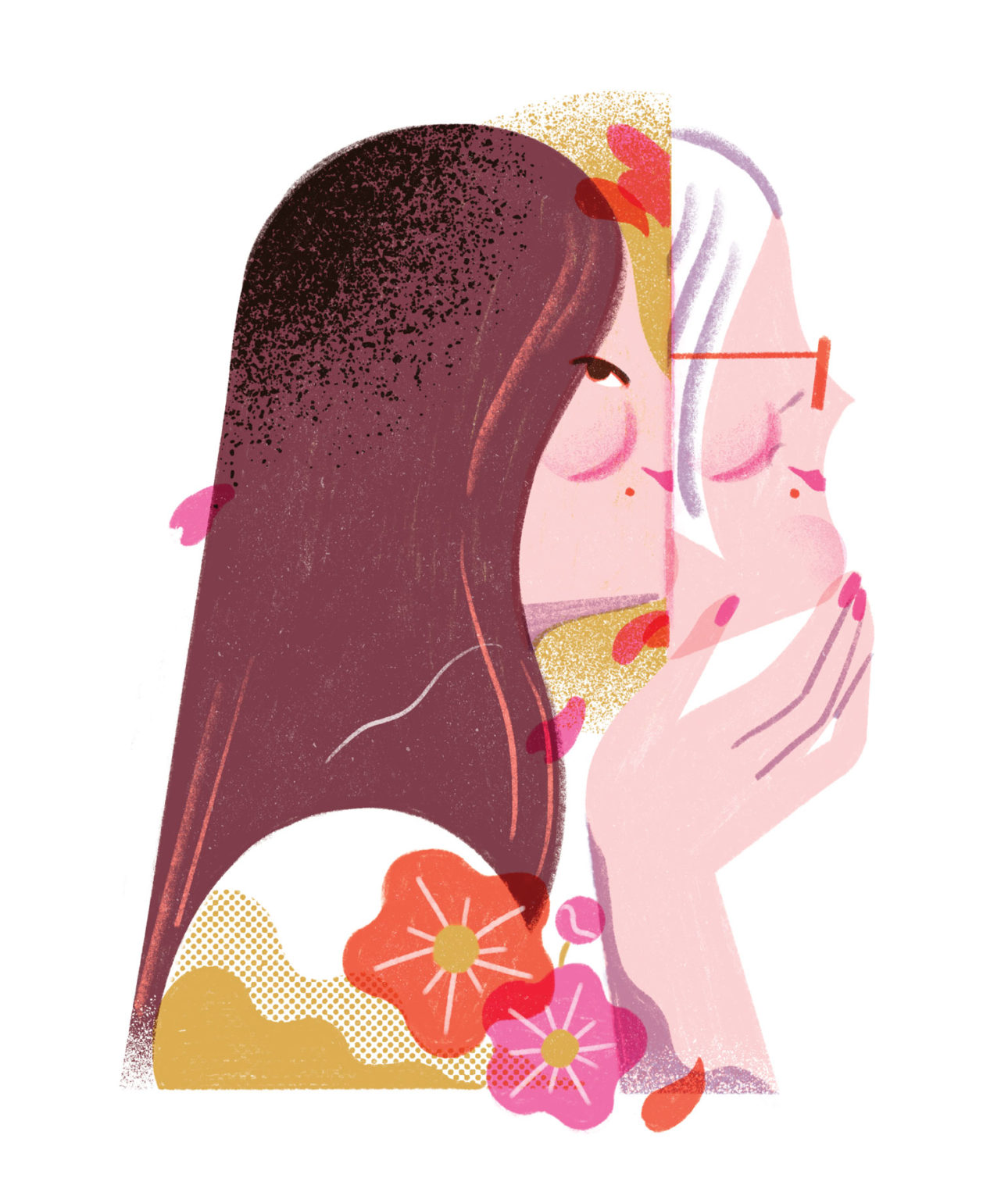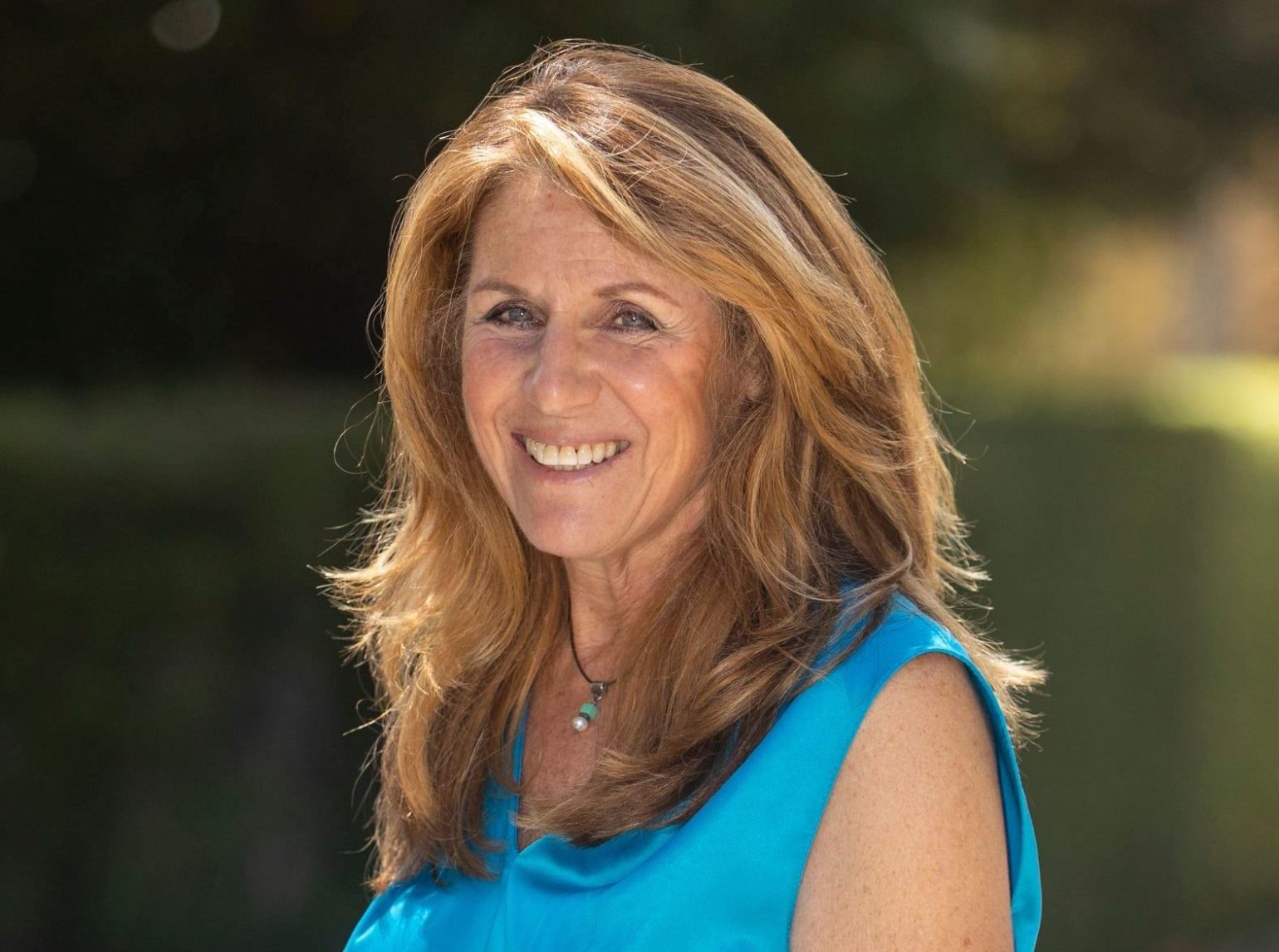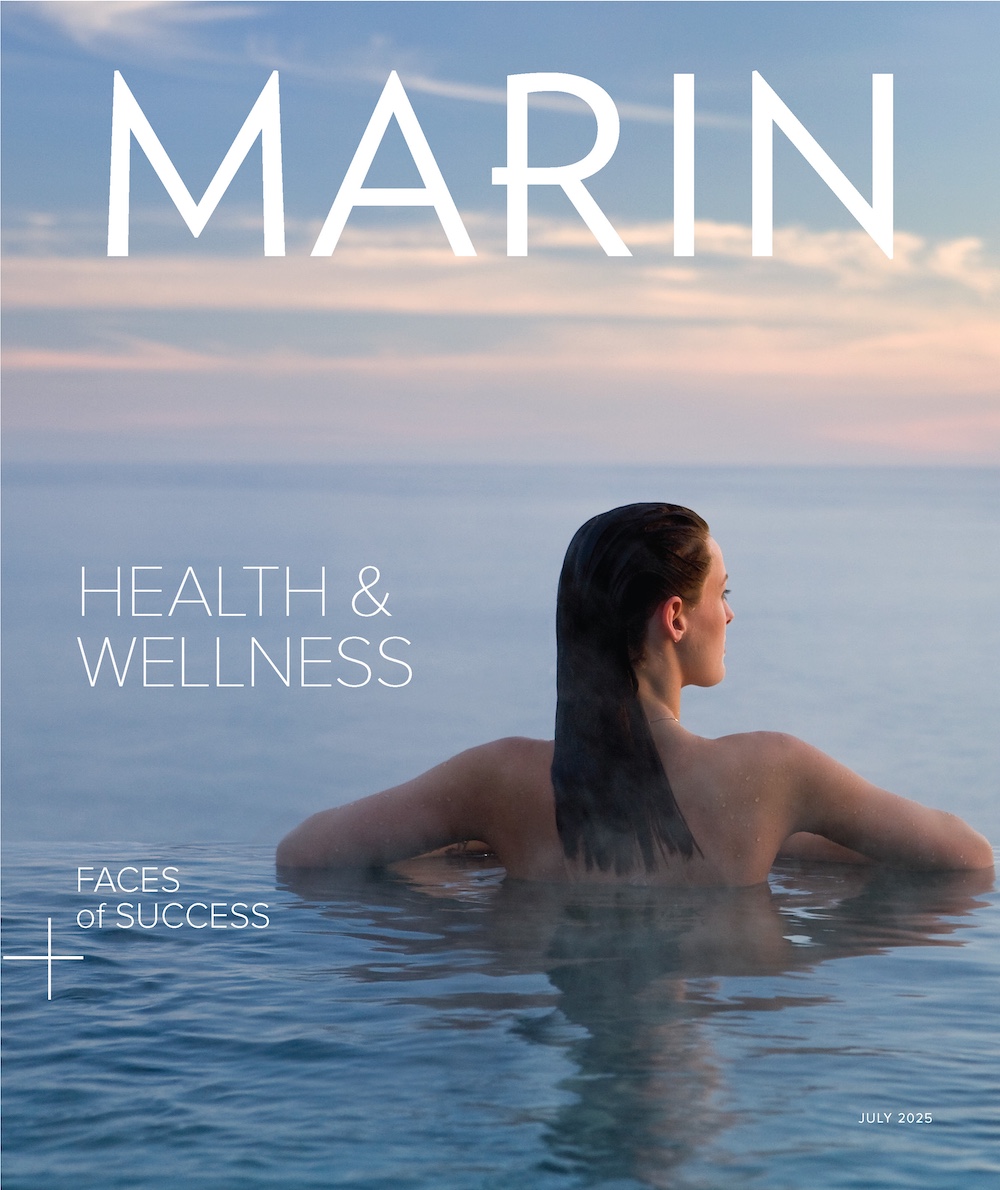
“You know, there’s something going on with the women in your town.”
I stopped sipping on my cocktail and leaned in a little closer.
“Oh? In what way?”
I wasn’t being coy. I’ve lived in my Marin town for 35 years, and while I know a lot of women, I certainly don’t know all of them. My interest was piqued.
I was on a first date at a lively southern Marin hotspot with a man I met on a dating app. He was a bit younger — 52 to my 61, not that I have a problem with that. Nor, evidently, did he.
Yes, he went on. The 40- and 50-something divorcees he and his friends had met weren’t interested in having a relationship or settling down like they were. The women were just interested in having sex.
I was not aware of this, but I suddenly felt incredibly proud of the Gen X women in Marin. You go, girls, I thought to myself. I wanted to know these women.
But I did know a woman just like that — me. They reminded me of how I felt when I was newly divorced at age 48 with two tweens. I needed to focus on my kids, my career, my finances and my new life. Plus, I had just gotten out of a romantic relationship and had no desire to get back into one. But I did have the other kind of desire.
When I shared my story with him, he listened, but then mansplained. The reason Marin’s divorcees were looking for casual sex and not a relationship, he shared, was because they wanted to get back at all the men in their lives who had ever treated them poorly. He could not imagine that a woman, especially a woman at midlife, when we’re expected to be invisible, asexual and undesirable, would just want to have sex. Not a relationship, or a partner, or a spouse or even a friend-with-benefits arrangement. Just sex for her own pleasure.
He had a hard time wrapping his head around that.
He isn’t the only man.
While researching for my new book, Not Too Old for That: How Women Are Changing the Story of Aging, I came across a lot of ageist and sexist narratives about middle-aged and older women’s sexuality. Mostly, that we shouldn’t flaunt it and we most certainly shouldn’t act on it.
Older women getting it on? Ew!

I hate to break it to men like my 52-year-old date, but we are, and we do. Because many of us want to. We are embracing the entirety of what American anthropologist Margaret Mead called post-menopausal zest, with decades ahead of us to create and embrace new versions of ourselves (LIFE, Sept. 14, 1959, “Meaty Meadisms About America,” page 146). Starting in my late 40s and continuing on until today, I have never felt more confident, interested and interesting, vibrant and juicy, with a newfound lust for life and, well, lust — just at the age when I, a post-menopausal woman, am supposed to be asexual, invisible, irrelevant, frail, incompetent and all the other unhappy stereotypes about women my age.
Even if the lusty Gen X women in my town never heard of Mead and post-menopausal zest, they’re certainly experiencing it. And that has been true throughout history, no matter what was being said about women.
Historian Susan Mattern doesn’t beat around the bush explaining why the narratives about middle-aged women don’t reflect how women themselves actually experience midlife. The medicalization and pathologizing of menopause into a “syndrome” is a way to weaken women when our power is rising, she suggests in her book, The Slow Moon Climbs: The Science, History, and Meaning of Menopause. “Dominant groups can be very creative in inventing new ways of oppressing people,” she writes.
And so even today, there’s something about seeing a woman in her 40s or older looking and acting sexual that is disturbing to a lot of people. Now in her 60s, Madonna, who has always pushed the sexual envelope, was harshly judged and shamed for posting photos of herself in barely there lingerie and fishnets on Instagram a few months back. So did other women around her age — actors Halle Berry, Elizabeth Hurley and Jennifer Lopez, and model Paulina Porizkova, among others — when they, too, posted photos of themselves looking like the sexually vibrant middle-aged women they are. It was OK for them to be celebrated (and commodified) for their beauty and sexuality when they were in their 20s and 30s and they fit into the narrow definition of beauty in our culture. But women who want to take charge of their own narratives past their fertile years? Sorry, granny.
It’s not just men doing the shaming and judging, however. Women, internalizing decades of harmful messaging, are also critical of other women. New York Times columnist Jennifer Weiner declared that she felt personally judged by J.Lo’s body when the then 50-year-old Lopez, along with then 43-year-old singer Shakira turned the 2020 Super Bowl halftime show into a display of fierce female power and unapologetic female sexuality.
Writing in the Daily Mail, Alexandra Shulman, the former editor-in-chief of British Vogue, observed, “When women’s bodies no longer serve any child-bearing purpose, we find flaunting them disturbing and slightly tragic. I don’t claim that this is fair. But it’s true. … One of the great plusses of growing older is gaining the confidence and freedom to value yourself as something other than a sexual object.”
Sure, but maybe women can value ourselves for all our accomplishments in the workplace or at home or both, while also wanting to be a sexual object. It isn’t a zero-sum situation. Why can’t we have it all?
Study after study indicates that sex can be beneficial to our physical and psychological health, especially as we age. In fact, sex is often a part of the “aging well” and “aging successfully” narratives, which, as innocuous as they sound, are actually harmful — is there a way to age “unsuccessfully” other than death? So, I guess it’s OK to be getting it on, as long as a midlife woman doesn’t actually look like she’s getting it on.
“What we know about adult development suggests that people become more expansive in a number of ways as they get older,” University of Utah professor and author of Sexual Fluidity: Understanding Women’s Love and Desire Lisa M. Diamond says. “[T]he notion that your sexuality can undergo these really exciting, expansive possibilities at a stage when most people assume that women are no longer sexually interesting and are just shutting down, is potentially a really liberating notion for women. Your sexual future might actually be pretty dynamic and exciting — and whatever went on in your past might not be the best predictor at all of what your future has in store.”
This is not to say that every woman at midlife wants to express her sexuality or is interested in having sex, and there’s nothing wrong, bad or worrisome about that. In fact, there are many older women who believe that the overemphasis on sex in Western culture can get in the way of those who’d prefer to have no sex, less sex or at the very least, other kinds of less-pressure sex than intercourse.
Whether a woman wants to be sexual or not later in life is her choice. But if her healthcare practitioner doesn’t expect her to be sexual and doesn’t address sexual issues with her, it could be harmful to her health, evidenced by the rise in sexually transmitted diseases in those 65 and older. And if society is dismissive of her sexuality, it is robbing her — and all women’s future selves — of the full expression of humanity and the depth of intimacy.
and I’m just overseeing it now.”
More from Marin:
- If You Let it, Menopause Can Be Your Biggest Dating Superpower Yet
- 5 Questions You Should Ask on a Date to Spark Meaningful Conversation
- Choosing Love Over Fear is the Fountain of Youth


